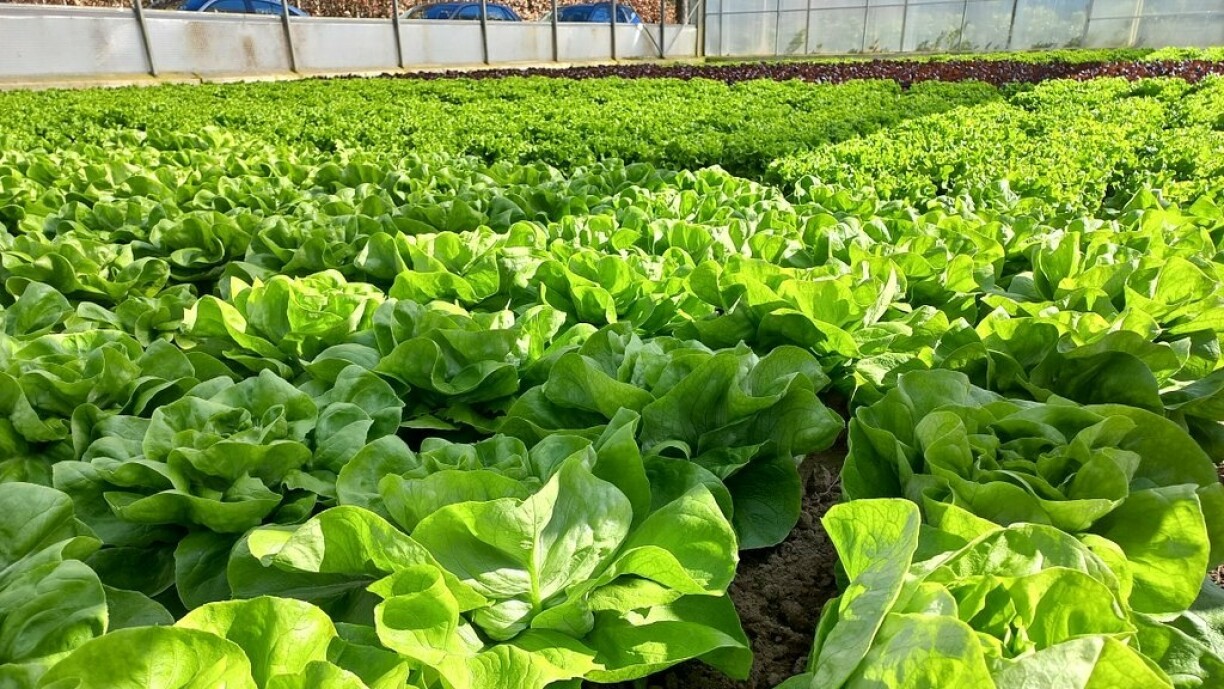
Clear-blue skies, moderate temperatures, and blooming flowers – spring is here, delighting gardeners and everyone alike! For vegetable farmers, this period marks the beginning of the season. Indeed, the Luxembourg government seeks to promote the cultivation of vegetables in Luxembourg, as made clear by a new law on agriculture that would allow for expanded greenhouses and would increase public financial support.
Our colleagues at RTL visited two farms to get some insights into the challenges and views regarding the new law.
The first place to visit is the Kirsch family farm in the northern area of Luxembourg City, where all sorts of vegetables and fresh herbs – potatoes, peppers, and salad – are cultivated in an open space spanning two hectares of land and 3.000m² in greenhouse space.
Niki Kirsch, of the family business, compares the different regulations regarding vegetable farming, stating that only a maximum of 250m² was allowed ten years ago, which made the use of greenhouses impossible. He explains further that greenhouses require at least 3.000m² to have the necessary infrastructure to be sustainable, such as irrigation, ventilation, and heating.
All these systems are operated by a so-called climate computer, which is linked to a weather station. In another one of Kirsch’s greenhouses, a second station can be found. Together, they cost around €45,000.
As tap water prices continue to rise, the Kirsch family is turning to alternative irrigation methods for their plants. They primarily rely on rainwater, which is collected from sealed surfaces and stored in an excavated basin. However, this solution alone is not sufficient to meet their needs.
However, tap water is used to clean the vegetables for hygienic reasons, as stated by Claude Kirsch, who represents the fourth generation in the family business. Kirsch speaks of a loop system which consists of removing the soil from the water, with the water then being used for washing the vegetables, followed by its “return to nature” without the need for a water treatment plant.
In Contern, Marie Goergen opened her first organic market garden four years ago. She cultivates 60 kinds of vegetables on three hectares, with greenhouses taking up 0,8 hectares of cropland. Goergen praises the new law on agriculture that allows the use of larger greenhouses coupled with an increase in financial support. However, she would prefer that the financial support promoted a healthy balance between the different ways of farming, stating that not only greenhouses should be supported, but also farming on land, as “has been done for decades”. She calls for a better and more sustainable production.
For Goergen, the biggest challenges in farming are high production costs, climate-related uncertainties, and securing a reliable customer base. Despite these obstacles, she sees significant potential for vegetable farming in Luxembourg, arguing that with better support for smaller farms, crop yields could increase tenfold.